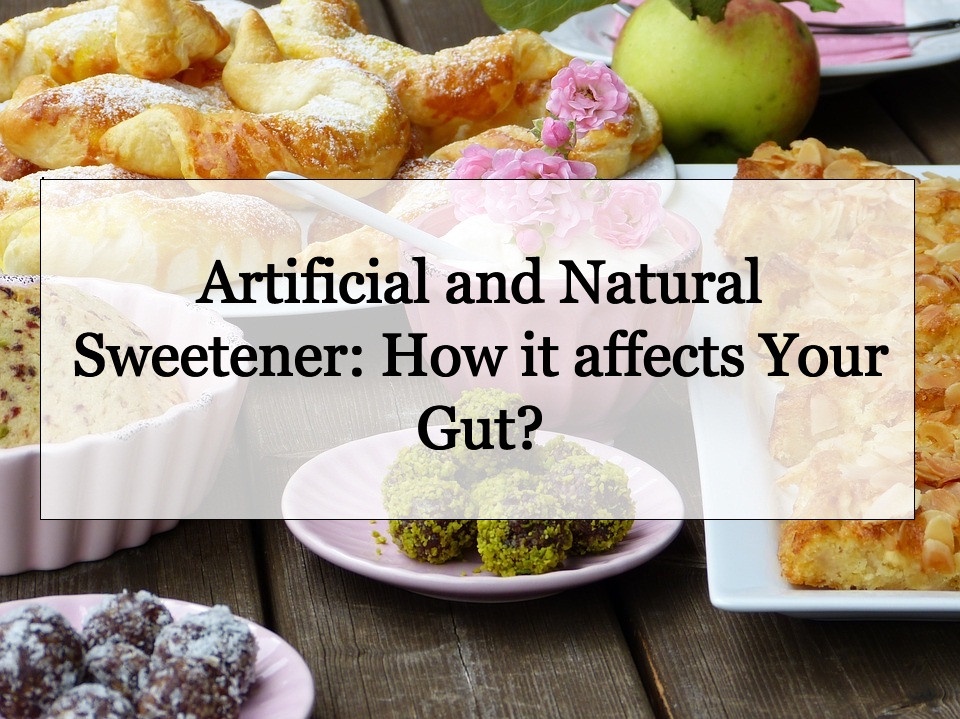Bread, cakes, desserts, yogurt, and many other food items have sweeteners. The sweetener war is raging for decades. Everyone discusses about, sugar vs natural sweeteners vs artificial sweeteners. Many feel all sweeteners are the same and are safe. But that is not true. There are only a few approved by FDA.
You must be thinking that artificial sweeteners in diet coke and other food are healthy. And what about natural sweeteners like honey, maple syrup, etc.? Well all artificial sweeteners are not always the answer to health issues. This is the real truth.
There has been a study by Scientists that depicts a correlation between obesity due to over consumption of sugar. A high intake of sugar can also cause dysbiosis. Not only this, you get tooth cavity, cardiovascular disease, cirrhosis of the liver, and dementia.
Despite all this, our body has to depend on glucose as it is the main energy source. Therefore it is important to consume sugar in moderation. No matter what you choose, make sure it is a zero calorie sweetener.
Whether you choose natural or artificial sweeteners, they have an impact on your gut. Did you know that? Well, we’ll explain.
How do sweeteners affect your gut?
Many have turned into sugar alternatives in order to satisfy their sugar cravings. Let’s dive into the anatomy of sweeteners and understand their effect on your gut microbiome. We will start with artificial sweeteners first:
Artificial Sweeteners
Artificial sweeteners also called nonnutritive sweeteners are synthetic or plant-derived. They provide sweetness with little to no calorie value.
People are consuming artificial sweeteners for many years. It has been successful in adding a sweet taste to food and beverages.
There is a long list of artificial sweeteners:
- Saccharin
- Sucralose
- Aspartame
- Neotame
- Advantame
Did you know that the ability to digest and thereby extract energy from food is via microbes present in the digestive tract called the gut? Collectively they are called the gut microbiome.
You must be unaware that artificial sweeteners travel via the digestive system undigested. Therefore, they pass out of your body unchanged. This is why they have no major effect on the body. But recent research has revealed that artificial sweeteners change the balance of bacteria in your gut.
There has been another Israel study that claims artificial sweeteners boost the populations of gut bacteria. The energy derived from it quickly turns into fat. This means you may be taking more calories than you can ever imagine. According to the interplay of bacteria and metabolism, Peter Turnbaugh of the University of California, San Francisco, these calories can then find their way to our hips, thighs, tummy, and midriffs.
Scientists have found a few potential unfavorable effects of artificial sweeteners post their consumption. Saccharin and sucralose have the tendency to shift some proportion of bacteria in the microbiome. This changes their composition.
Few compounds in the category increase the relative proportion of Bifidobacterium in humans. There is a lot of work that is required to evaluate the role of artificial sweeteners in the gut microbiome. But most of them have adverse effects on health.
Now let’s talk about natural sweeteners
Natural Sweeteners
Natural Sweeteners are the best substitute for sugar because they are processed and derived naturally. Some of the favorites among the health-conscious people are:
- Stevia
- Honey
- Dates
- Maple Syrup
- Molasses
Unlike artificial sweeteners, natural sugar substitutes have many positive effects. Their consumption protects the gut from harmful effects caused by mycotoxins. You must be wondering what are mycotoxins. They are produced by fungal molds which grow on food and crops. Besides this, their consumption also boosts the microbiome’s composition. The important probiotic types of bacteria are Bifidobacteria and Lactobacillus.
Another study showed that a compound called inulin is a fiber in the plant is prebiotic. Therefore, all the natural sugar substitutes promote the growth of probiotic bacteria while staving away from harmful ones.
What’s the solution?
The best solution is Stevia.
Stevia is derived from stevia leaves. Leaves are used to distill the chemical referred as reb-A. This is used in soda, drinks, baked items and different food products. Stevia liquid and stevia powder is 10 times sweeter than sugar and the extract is 15 times sweeter. Regardless of this, stevia is a no calorie sweetener.
Stevia has a long history of safe use, it tastes amazing and has no adverse effect on your gut. So, you can enjoy your sweet meal stress-free.
#stevia #steviapowder #naturalsugarsubstitute


No comments yet